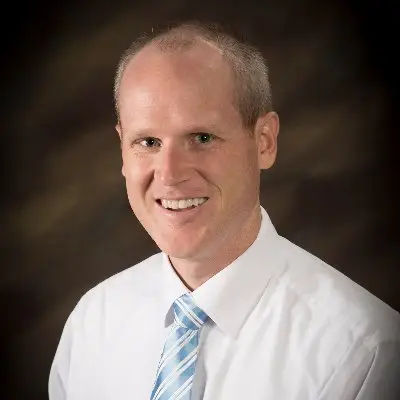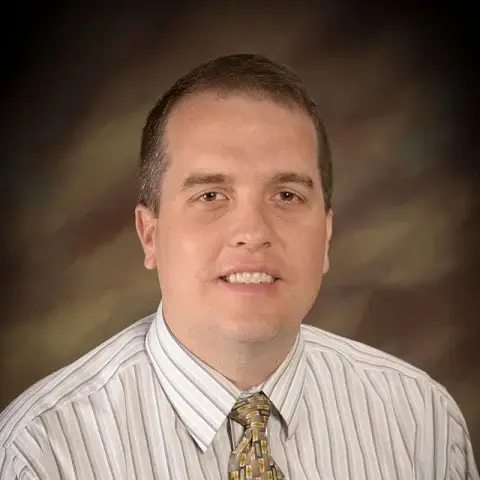An interview with Scott Burton and Jay Hathway

Scott Burton, Expert in Applied Physics at La Trobe University
Dr. Scott Burton is a Computer Science faculty member at BYU-Idaho, where he has taught and developed courses since 2013. He holds a Ph.D. in Computer Science from BYU, with research interests in AI, machine learning, and computational health science. Prior to academia, he worked as a software engineer and architect across various industries.

Jay Hathaway, Expert in Applied Physics at La Trobe University
Jay Hathaway is the Data Science Program Director at BYU-Idaho, where he leads the data science curriculum. He earned a Master’s in Statistics from BYU and a Bachelor’s in Economics from the University of Utah. Formerly a Senior Scientist at Pacific Northwest National Laboratory, he contributed to Visual Sample Plan software and sampling method development. His research interests include data science, visualization, and energy modeling, and he teaches R programming at BYU-Idaho.
Welcome to Bringing AI to Campus: An Interview Series, which explores the transformative role of artificial intelligence in higher education. In this interview, the series features Scott Burton, Online Program Director and Professor at BYU-Idaho, and Jay Hathaway, Data Science Program Chair and Professor at BYU-Idaho. The discussion covers how AI is reshaping the classroom, transforming industry expectations, and challenging universities to rethink how they prepare students for the future.
Scott Burton and Jay Hathaway shared their thoughts on how AI is being integrated into the education process. Burton emphasized that AI isn’t just about teaching students facts, but about helping them engage with complex ideas. “There are people across disciplines—humanities, engineering, and more—thinking about how to use AI to deepen learning,” he said. “It’s about helping students think more critically, not just memorize information.”
This idea of using AI to promote deeper thinking is becoming central to educational innovation. Burton noted, “Teachers are using AI to help students engage with material in new ways, pushing them to think beyond surface-level knowledge.”
As AI tools become more prevalent, industries are adjusting their expectations for graduates. Hathaway discussed how AI is automating routine tasks, freeing up professionals to focus on higher-level work. “Instead of writing all the code for a dashboard, I can let AI handle the basics, and I can focus on refining and improving the final product,” he explained.
This shift in industry practices is pushing universities to rethink how they prepare students. Burton highlighted the challenge: “We need to reconsider what a computer science education should look like. AI is changing the landscape, and we have to adapt.” The goal is to equip students with skills that reflect the evolving demands of the job market.
At BYU-Idaho, the focus is on preparing undergraduates for careers in a rapidly evolving tech industry. As Burton explained, “We are an undergraduate institution with no graduate degrees, so our focus is entirely on teaching and preparing students for industry.”
But Hathaway pointed out that universities need to better understand what companies actually expect from undergraduates in this new AI-driven world. “We’re trying to figure out what skills companies want from undergraduates—because they’re not expecting them to build full AI models,” he said. Instead, the focus is on developing practical skills that allow students to apply AI in meaningful ways.
Burton emphasized that this shift requires a new way of thinking about education: “We have to ask ourselves—should we keep teaching the way we always have, or should we turn everything on its head and build something new that fits the reality of today’s world?”
Both Burton and Hathaway agreed that AI’s role in education is not confined to computer science departments. The future of education will require AI literacy across many disciplines, as AI becomes a tool that students in all fields must learn to use effectively.
Hathaway posed a critical question: “There’s a market for PhDs in AI, but what does the market look like for bachelor’s graduates? How do we prepare them for roles that require AI knowledge, without needing them to be full-blown AI specialists?” The challenge is to integrate AI into existing programs in a way that enhances career readiness for all students.
As AI continues to evolve, universities must keep pace. Hathaway stressed the importance of aligning educational programs with industry needs: “We need to figure out exactly what companies are looking for from graduates, and make sure we’re teaching those skills.”
Burton encouraged educators to think strategically about how to approach AI in their curricula: “How big is the AI market? How fast is it growing? And how can we adapt our programs to keep up with those changes?” These questions, he suggested, should be at the forefront of decision-making as institutions embrace AI.

